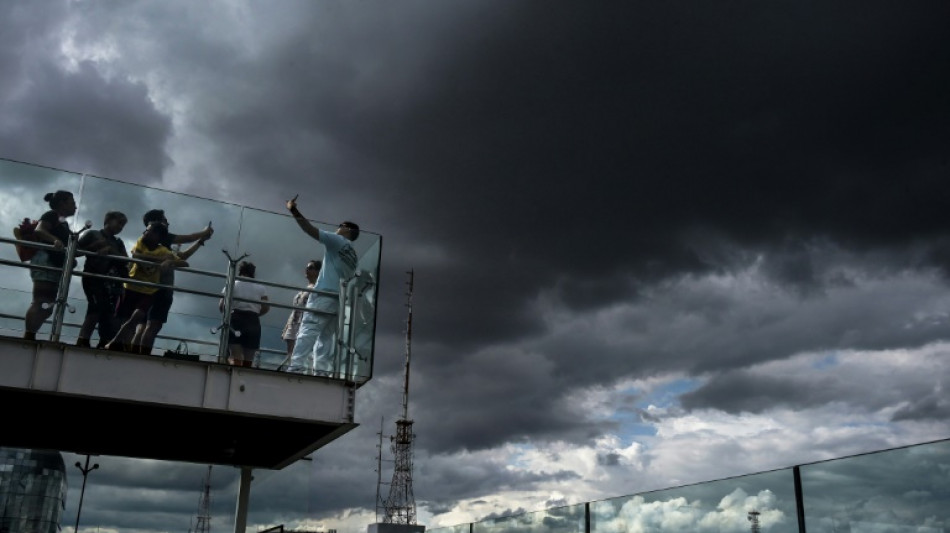
-
 Teenager Flagg leads Mavericks to upset of Pistons
Teenager Flagg leads Mavericks to upset of Pistons
-
Australia's Head fires quickfire 68 as England's Ashes hopes fade

-
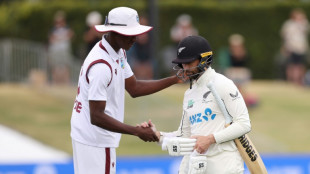 Conway falls for 227 as New Zealand declare at 575-8 in West Indies Test
Conway falls for 227 as New Zealand declare at 575-8 in West Indies Test
-
Japan hikes interest rates to 30-year-high

-
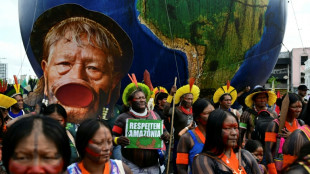 Brazil's top court strikes down law blocking Indigenous land claims
Brazil's top court strikes down law blocking Indigenous land claims
-
Conway falls for 227 as New Zealand pass 500 in West Indies Test
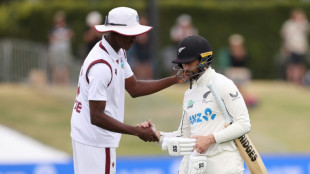
-
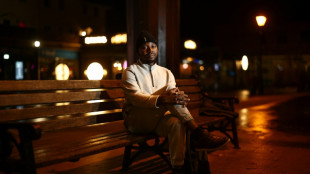 'We are ghosts': Britain's migrant night workers
'We are ghosts': Britain's migrant night workers
-
Asian markets rise as US inflation eases, Micron soothes tech fears

-
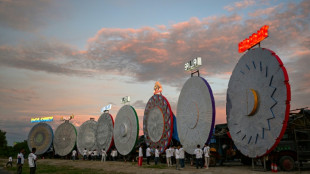 Giant lanterns light up Christmas in Catholic Philippines
Giant lanterns light up Christmas in Catholic Philippines
-
TikTok: key things to know

-
 Putin, emboldened by Ukraine gains, to hold annual presser
Putin, emboldened by Ukraine gains, to hold annual presser
-
Deportation fears spur US migrants to entrust guardianship of their children

-
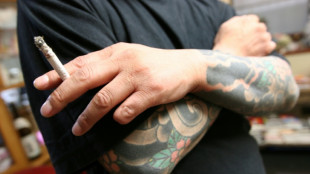 Upstart gangsters shake Japan's yakuza
Upstart gangsters shake Japan's yakuza
-
Trump signs $900 bn defense policy bill into law

-
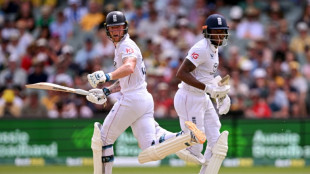 Stokes's 83 gives England hope as Australia lead by 102 in 3rd Test
Stokes's 83 gives England hope as Australia lead by 102 in 3rd Test
-
Go long: the rise and rise of the NFL field goal

-
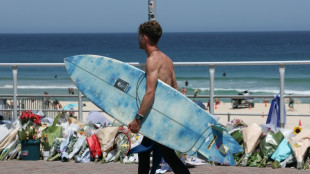 Australia announces gun buyback, day of 'reflection' after Bondi shooting
Australia announces gun buyback, day of 'reflection' after Bondi shooting
-
New Zealand Cricket chief quits after split over new T20 league

-
 England all out for 286, trail Australia by 85 in 3rd Test
England all out for 286, trail Australia by 85 in 3rd Test
-
Australian announces gun buyback, day of 'reflection' after Bondi shooting
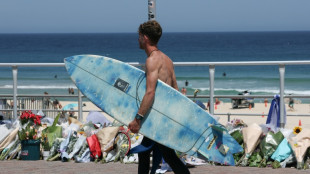
-
 Joshua takes huge weight advantage into Paul fight
Joshua takes huge weight advantage into Paul fight
-
TikTok signs joint venture deal to end US ban threat

-
 Conway's glorious 200 powers New Zealand to 424-3 against West Indies
Conway's glorious 200 powers New Zealand to 424-3 against West Indies
-
WNBA lockout looms closer after player vote authorizes strike

-
 Honduras begins partial vote recount in Trump-dominated election
Honduras begins partial vote recount in Trump-dominated election
-
Nike shares slump as China struggles continue

-
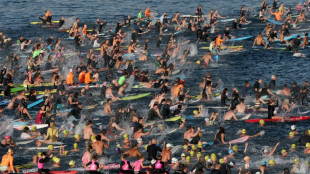 Hundreds swim, float at Bondi Beach to honour shooting victims
Hundreds swim, float at Bondi Beach to honour shooting victims
-
Crunch time for EU leaders on tapping Russian assets for Ukraine

-
 Pope replaces New York's pro-Trump Cardinal with pro-migrant Chicagoan
Pope replaces New York's pro-Trump Cardinal with pro-migrant Chicagoan
-
Trump orders marijuana reclassified as less dangerous drug
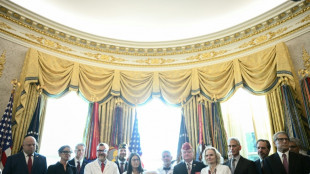
-
 Rams ace Nacua apologizes over 'antisemitic' gesture furor
Rams ace Nacua apologizes over 'antisemitic' gesture furor
-
McIlroy wins BBC sports personality award for 2025 heroics

-
 Napoli beat Milan in Italian Super Cup semi-final
Napoli beat Milan in Italian Super Cup semi-final
-
Violence erupts in Bangladesh after wounded youth leader dies
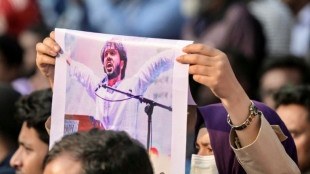
-
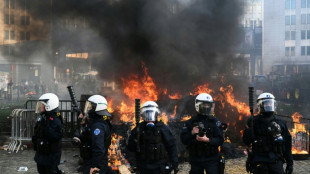 EU-Mercosur deal delayed as farmers stage Brussels show of force
EU-Mercosur deal delayed as farmers stage Brussels show of force
-
US hosting new Gaza talks to push next phase of deal

-
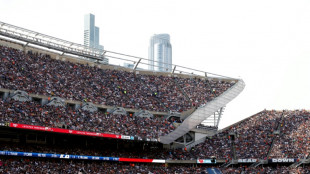 Chicago Bears mulling Indiana home over public funding standoff
Chicago Bears mulling Indiana home over public funding standoff
-
Trump renames Kennedy arts center after himself

-
 Trump rebrands housing supplement as $1,776 bonuses for US troops
Trump rebrands housing supplement as $1,776 bonuses for US troops
-
Harrison Ford to get lifetime acting award

-
 Trump health chief seeks to bar trans youth from gender-affirming care
Trump health chief seeks to bar trans youth from gender-affirming care
-
Argentine unions in the street over Milei labor reforms
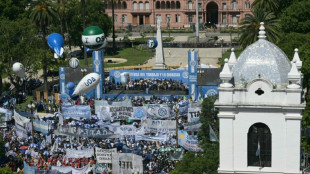
-
 Trump signs order reclassifying marijuana as less dangerous
Trump signs order reclassifying marijuana as less dangerous
-
Famed Kennedy arts center to be renamed 'Trump-Kennedy Center'

-
 US accuses S.Africa of harassing US officials working with Afrikaners
US accuses S.Africa of harassing US officials working with Afrikaners
-
Brazil open to EU-Mercosur deal delay as farmers protest in Brussels
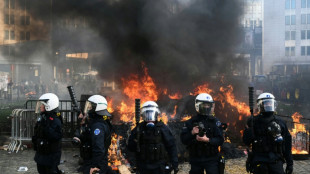
-
 Wounded Bangladesh youth leader dies in Singapore hospital
Wounded Bangladesh youth leader dies in Singapore hospital
-
New photo dump fuels Capitol Hill push on Epstein files release

-
 Brazil, Mexico seek to defuse US-Venezuela crisis
Brazil, Mexico seek to defuse US-Venezuela crisis
-
Assange files complaint against Nobel Foundation over Machado win


How climate change turned Sao Paulo's drizzle into a storm
Such was Sao Paulo's reputation for "garoa" -- a fine evening drizzle caused by damp air from the nearby coast colliding with the city's cool climes -- that famous singer Caetana Veloso waxed lyrical about it in his 1978 hit
These days, however, light sprinklings are rare and deadly storms are increasingly the norm in the city of 12 million people.
In March, they popped out of work by car a snack when a sudden storm felled a tree that came crashing down on their windshield.
The pair, who were rescued by firefighters, escaped death by a matter of inches.
"It was a moment of terrible panic, a gusting wind whipped up in a few seconds," Andrade, a 43-year-old hospital worker, told AFP.
The increasing of extreme weather events is compared to vibey but violence-plagued Rio de Janeiro.
- Thousand-kilometer tailbacks -
In the last two decades the city has weathered storms classified "very dangerous" by the National Institute of Meteorology -- more than double than in the previous years.
Falling trees are a particular hazard: a staggering 2,000 have been toppled by storms so far this year, according to Sao Paulo city officials.
Scientists blame a mix of global warming and hyper-urbanization for driving up temperatures, which, combined with high humidity in the region, create the perfect storm.
Average summer daytime temperatures have risen by four degrees Celsius in Sao Paulo in the past 40 years, to 24.2 degrees Celsius ), according to weather officials.
"Today you have to think of Sao Paulo almost as a tropical city," said Cesar Soares, meteorologist for the Climatempo TV network.
- Living with risk -
The changes are taking a toll as Brazil's economic engine.
Nearly half of companies surveyed by the chamber of commerce of Sao Paulo state said their profits were hit by extreme weather last year.
Floods and power cuts damaged merchandise and caused downtime while the heat disrupted supply chains.
The worst drought since records began in Brazil, which experts have also linked to climate change, gave way to storms in October that knocked out power to nearly 1.5 million homes in Sao Paulo.
Authorities are trying to adapt to the upheaval.
Residents have received 14 storm alerts
Efforts are also underway to eradicate so-called "heat islands" -- densely populated areas where temperatures are often several degrees above average.
The city's green coverage -- the area occupied by trees, parks, rooftop gardens, street greenery -- has risen from 15 percent to 26 percent in the past three years
And the city's drainage system is being revamped to fight flooding.
But Sao Paulo's poorest districts are still fighting a rising tide of calamity.
In Jardim Pantanal, a low-income neighborhood on the banks of the Tiete River, residents had to use water drums as rafts to evacuate children during floods in February.
"The government proposed relocating families, but most of us don't want to leave," Pedro Guedes, a 66-year-old community leader said.
Lieutenant Maxwell de Souza, a Civil Defense spokesperson, acknowledged that it was "not feasible to evacuate everyone every time a neighborhood floods."
"That's why we're trying to create a culture of coexistence with risk: since we can't control climate change, we need resilient communities," he said.
O.Bulka--BTB
